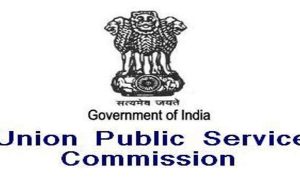With the increasing scope of digital marketing career, SEO jobs have become quite popular. If you are preparing for an SEO interview, here is a list of some of the most popular SEO interview questions and answers.
1. What is SEO?
SEO or Search engine optimization is a set of activities undertaken by people to make their website or webpage more comprehensible/attractive for the search engine algorithm. When a webpage or website is properly optimized, it appears in top positions for the queries on a search engine.
The purpose of SEO is to increase the organic or unpaid traffic to your website or webpage through organic search engine results.
2. What is on-page & off-page SEO?
- On-page: The process of optimizing web pages by influencing internal factors like content quality, HTML source code, content structure, keyword density, meta title and description, page title, url structure, internal linking, etc. is called on-page SEO.
- Off-page: Improving the performance of a website on a search engine with the help of external factors like link building, blog directory submissions, forum submissions, social bookmarking, social media engagement, etc. is called Off-page SEO.
3. Apart from Google what other search engines can you name?
Some of the popular search engines other than Google are:
Bing, Yahoo, Baidu, Ask.com, Vimeo, DuckDuckGo, and Yandex
4. What is crawling & indexing?
- Crawling: Crawling is a process by which, a crawler/bot of a search engine, gathers data about a webpage. In simple terms, a crawler studies websites, related web-pages, links, and content to create entries for search engine indexing.
- Indexing: A webpage is considered to be indexed when it is added to the database of a search engine. Once the indexing is done, the webpage will start appearing for queries on the search engine. However, it is important to note that the webpage will have to go through a process of search engine optimization to get reflected on top positions.
5. What is the importance of Keywords?
Keywords are terms that define what a particular content is about. Well-researched keywords are very important as they lead the way in optimizing content on your website and making it comprehensible for search engines.
6. What is your process for Keyword Research?
Keyword research can be a long and elaborate process, however, you can narrate the following process as a simple reply to this question:
- Step 1 (Analysis): Research words relevant to the industry/business and analyze the keywords used in the website of competitors to create a Keyword Bucket.
- Step 2 (Research related keywords): Find out the best related set of words along with the current set of keywords you have.
- Step 3 (Prepare long-tail Keywords): Create a list of long-tail keywords that are most likely to be searched by users.
- Step 4 (Test keyword phrases on Google Adwords Keyword Planner): Keyword planner will help you cut down your list and give you a set of keywords that will optimize the performance of your website. Google Adwords is also an effective tool for competitor analysis.
7. What is keyword density?
Keyword density is the percentage of times a keyword appears on your webpage as compared to the total number of words on that page. The idea behind maintaining proper keyword density is to help optimize your webpage on a search engine, without having it penalised for keyword stuffing. The ideal keyword density is considered to be 1 to 3 percent.
8. What is a long-tail keyword?
For understanding long-tail Keyword, it is first important to understand Head Keywords. Head keywords, also called short-tail keywords, are regular terms which a lot of people search about (e.g. – Sports Shoes). Long-term keywords are additions to head keywords that make the search more specific (e.g. – Sports Shoes under Rs. 2000).
9. What are canonical URLs?
When the same or similar content is being used at different places within your website, the canonical URL function helps in specifying the source that should be considered as ‘original’ by the search engine. It, therefore, solves the problem of duplicate content by directing the search engine to the most preferred source.
10. What is meta description?
The links that appear after a query is entered in a search engine contain a 155 to 160 character snippet below it, which describes the contents of the webpage. This snippet is called meta description.
11. What are alt-attributes used for?
In SEO, alt-attribute is used to give an alternative text to an image. If for some reason the image cannot be viewed, the Alt-attribute text gives information about that image.
12. What do you understand by backlinking & why is it important in SEO?
A backlink is a hyperlink on another website that leads a user to your website. In SEO, backlinks are of immense importance as the number and quality of backlinks have a huge impact on the popularity & performance of a website. Backlinks are one of the main factors that affect the domain authority of a website.
13. What are the different methods of backlinking?
Some of the popular methods of backlinking are forum posting, blog commenting, guest posts on related websites, broken link method, skyscraper technique, etc.
14. What are the most important SEO ranking factors?
Some of the most important SEO Ranking factors are:
- Quality content
- Relevant keywords
- Secured website
- Mobile Friendliness
- High-Quality backlinks
15. What are Panda and Penguin updates?
Panda: The Panda update was introduced to lower the rank of sites with poor content quality and improve the performance of higher quality sites. It is updated time to time.
Penguin: Penguin is a machine learning algorithm. It was launched to penalise websites that use spammy backlinks or low-quality backlinks.
16. What is Google Hummingbird?
Unlike Panda and Penguin, which were just updates, Hummingbird is deemed to be a revamped and improved version of the old Google search algorithm. Launched in 2013, this algorithm is said to give more emphasis on context behind the words and is said to understand conversational queries.
17. What is domain Authority & why is it important?
Domain Authority or DA refers to the strength of a domain to rank high on search engines. This metric gives a score between 1 to 100. The higher the score, the better is the DA.
DA is important as it gauges the quality of a website and also its ability to rank high in future. Generally, a website with an excellent quality of content and reasonable number of high-quality backlinks gets a high DA score.
18. What is RankBrain?
An artificial intelligence program developed by Google, Rankbrain uses machine learning to gather data from a variety of sources and teaches itself to generate the most relevant search results for the user. Many SEO commentators say that ‘user intent’ is the primary motive behind RankBrain.
19. What is an XML sitemap?
XML Sitemaps (Extensible markup language) is a list of URLs on your website in machine-readable format, which facilitates search engines to crawl the website more effectively.
20. What is AMP and how is it useful?
An open source coding framework launched by Google, Accelerated Mobile pages (AMP) is used to create a simple mobile responsive website which loads quickly on mobile devices.
AMPs are very useful as it speeds up loading, reduces bounce rate, and gives a boost to SEO efforts.
21. Explain organic, referral & Paid Traffic.
Organic traffic: When visitors come to your website after finding its link as a result of a query in a search engine.
Referral traffic: When traffic comes to your website not through a search engine but through a hyperlink on another website.
Paid traffic: Traffic that gets directed to your website through ‘paid’ search engine marketing & paid social media marketing campaigns.
22. What is the limit of description & title tag?
Meta Description: The suggested limit for meta description is between 150 – 160 characters.
Title tag: The suggested limit is between 50 to 60 characters.
23. What is structured data?
If you want your webpage to be reflected as a ‘rich snippet’ in search engine results, you must integrate structured data in your website. In simple terms, it is data coded in a specific format that makes it easier for search engines to understand it comprehensively and present it to the users in a structured rich snippet format.
24. What is anchor text?
A hyperlink visible in the form of text on a website is called anchor text. Anchor texts are valuable in SEO as they are often backlinks to other websites. Relevant anchor texts have a positive effect on websites search engine performance.
25. How will you go about optimizing a website for SEO?
Here is a list of simple steps which you can narrate in an SEO interview:
- Conduct keyword analysis and list down accurate long-tail keywords.
- Develop high-quality long-form content, preferably between 1600 to 2000 words.
- Carry out on-page & off-page optimization, and try to generate high-quality backlinks.
- Use a mobile responsive web design.
- Ensure optimum page speed.
26. What is your process of conducting competitor analysis?
Different SEO professionals use different ways to conduct competitor analysis. However, for the purpose of the interview you can narrate the following steps:
- Step 1 (Shortlist keywords): To begin with, shortlist the keywords (words, phrases, and longtail keywords) that best define your website and which are used frequently.
- Step 2 (Create a list of competitor’s): Search for shortlisted keywords on google and make a list of websites/webpages that rank on the top
- Step 3 (Analyse competitor’s website): Do a thorough analysis of the competitor’s website & check key factors like keywords, meta data, backlinks, domain authority, blog frequency, social media engagement. etc.
- Step 4 (Identify the gaps): Compare your website with that of your competitors, and identify the gaps.
27. How do you assess the performance of an SEO campaign?
Some of the metrics by which you can assess the performance of an SEO campaign are:
- Keyword ranking: The rank of your website for a specific keyword is the primary metric for your SEO campaign. If your SEO campaign is doing well, your website will rank higher in the search engine result pages (SERP’s).
- Backlinks: The number & quality of inbound links to your website also indicate its growing popularity.
- Traffic (Organic, referral & Paid): The traffic and its source will help you gauge the efficacy of your SEM (Search engine marketing) & SMM (Social Media Marketing) strategy.
- Conversion: Conversion is the ultimate goal of all marketing activities and SEO campaigns are no different. This therefore, makes CTA (Call to action by way of sales, sign-ups, services, etc.) one of the most important metrics to assess the performance of an SEO campaign.
28. What is the importance of social media in SEO?
- Increased visibility : Although social shares do not affect your ranking on Google, it does have the ability to reach a wider audience. This eventually leads to more people visiting your website, thereby improving the search engine ranking.
- Increased brand awareness: SEO and Social media marketing are two methods that complement each other. A brand with good social media engagement along with high-quality content on its website is likely to rank well on a search engine.
- Helps in link building : There’s a good chance that influencers who use your website often, may share the link on their own websites or blogs.
29. What are some of the common errors that can derail an SEO campaign?
Some of the common errors that can harm an SEO campaign are:
- Choosing the wrong keyword
- Not using alternative keywords
- Using mediocre or low-quality content
- Publishing content that does not drive ‘Call to action’
- Ignoring backlinks
- Ignoring technical aspects like site speed, schema markup, mobile compatibility, website security, etc.
HR SEO interview questions and answers
Here is a list of HR SEO interview questions:
30. Tell me a unique quality that makes you suitable for SEO job?
Possible Answer 1: (For Beginners)
Being an avid reader, I have a knack for writing. I also have a very good vocabulary, which I think would help me in content creation. My excellent ability to conduct research can help me develop engaging SEO-friendly content for users. I am good at prioritising work and carrying out tasks with discipline & efficiency.
Possible Answer 2: (For Experienced)
Apart from my core competency in SEO, I have also learned a lot about other content management and content marketing functions (give examples). I think, my holistic understanding of content will help me in achieving the intended objectives of the company as well as our clients.
31. How well do you perform under pressure?
SEO often requires working on multiple accounts simultaneously, and one often needs to put in long hours to complete the work. With this question, the interviewer is trying to gauge if you will be able to deal with this high-pressure situation.
Possible Answer 1: (For Beginners)
I think my performance under pressure will depend a lot on how quickly & well I learn. Once I am confident about the work that I am doing, I think, I’ll be able to manage the pressure well.
Possible Answer 2: (For Experienced)
I wouldn’t say that I don’t get bothered by pressure, but with time I have learned to handle it more effectively. I manage deadlines by working according to a well planned schedule and I handle pressure situations with tact & calmness.
32. Are you organized as a professional?
SEO campaigns require meticulous planning and implementation. The interviewer, with this question, is trying to assess if you are also structured in the way you work.
Possible Answer 1: (For Beginners)
I am a person who does his/her daily chore as neatly & methodically as possible. I think this habit will help me in this job
Possible Answer 2: (For experienced)
Having handled multiple clients and campaigns simultaneously, I understand acutely, how important organization is in a content management job. With experience, I have learned to schedule my work in a way which ensures efficiency without compromising on deadlines.
33. How well do you handle a dynamic team environment?
Content management requires close synergy between creative & technical functions. It is therefore, important for an SEO professional to be a good team player.
Possible answer 1: (For beginner)
As an individual, I am quite sociable & friendly and so, I think I’ll be able to handle the team environment well.
Possible Answer 2: (For Experienced)
Content management and SEO is the kind of work which requires combined efforts from many different stakeholders to produce good results. With time and experience, I have learned how to communicate with different members of the team and how to get the best results from them.
34. Where do you see yourself 5 years from now?
Possible Answer 1: (For Beginner)
Apart from having in-depth practical knowledge of SEO, in 5 years, I also wish to have a comprehensive understanding of the digital marketing field, so that I am considered worthy of managerial and strategic responsibility.
Possible Answer 2: (For Experienced)
In 5 years time, I would want to be in a senior leadership position, which has the power to influence strategy, manage budgets, and has sufficient creative freedom.
35. What trends do you see in the near future of SEO?
SEO and content management is an ever-evolving field with regular search engine algorithm updates and frequent innovation. Aspiring SEO professional must keep themselves informed about these changes.
Possible Answer:
The most important factor influencing SEO today, and which is likely to remain pertinent in the future is user intent. With the introduction of AI & machine learning, this capability will only be enhanced. Another important factor that will make its presence felt in the near future is structured data markup.
36. Do you have any questions for us?
Some questions to ask in an interview:
- Do you have an induction program?
- What are the SEO tools that the company uses?
- How does the company/agency support SEO learning & development?
- Are there any other expectations apart from the mentioned job description?
- Does the company have an expansion plan?
- What would you like to share with me on career growth opportnities in your company?
- Does the company/agency allow lateral role changes?
Popular SEO tools
- SemRush
- SE Ranking
- Ahrefs
- Raven Tools
- Moz Pro
- Google Search Console
- Google Keyword Planner
Popular SEO Blogs
- The Moz Blog
- Neil Patel
- Search Engine Journal
- Yoast SEO Blog
- Google Webmaster Blog
- SEO Copywriting blog
- Search Engine Watch
For more updates: Like us on Facebook and follow us on Twitter & Instagram





































